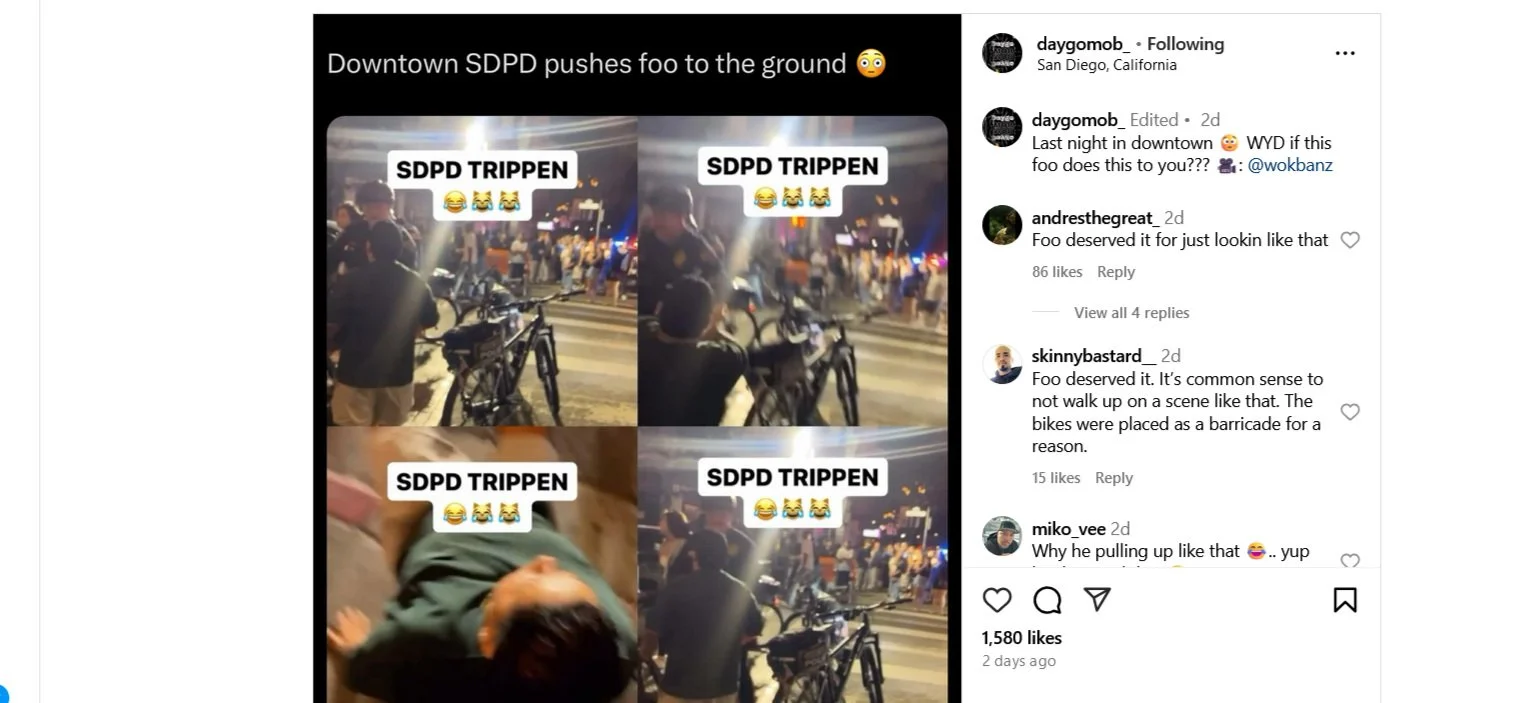It never fails: a video is posted of police brutality and a chorus of knuckleheads in the comments chime in to blame the person harmed.
“Why didn’t they just comply?”
“They had it coming!”
And so on. Endless deference to the officer. Contempt and ridicule for the person who is being mistreated by an agent of state power.
The latest version of this is the video posted by daygotv of a San Diego police officer abruptly pushing a person to the ground merely because the person walked up to the officer’s bicycle at the perimeter of a detention. The victim does nothing remotely aggressive. It looks like they simply want to ask a question.
Blame the Victim: Instagram commenters pile on to defend law enforcement use of excessive force.
No matter: the commenters pile on, blaming the victim for the officer’s push. Monday morning quarterbacking a use of force that was not even vaguely justified by the circumstances.
This deep instinct of many members of the public to apologize for police brutality is a reality that we have to recognize in civil rights litigation. It’s frankly not that different from the way people normalize abusive personal relationships, telling themselves over and over that their partner/parent/etc. is fundamentally good despite the fact that they do awful things.
The psychological phenomenon that’s going on here is internalized violence. When a person has been abused long enough, they begin to accept the abuse as justified and normal, even if people who live under different, more humane conditions would be stunned and horrified to be subjected to the same treatment.
There is also more than a little cowardice behind such comments. Folks make themselves feel safer and more secure by siding with the abuser and blaming the person who was harmed, since taking that stance implies that they themselves wouldn’t ever be abused in the same situation. If they actually were harmed, they would of course want sympathy and outrage. But since it didn’t happen to them in this case, they prefer to side with the person causing the harm.
Psychological distortions are not the same thing as objective reality, and in situations like this they also don’t have any connection to the real state of the law. Any degree of force that is used where there is no need for force is, by definition and as a matter of settled precedent, excessive, and should be called out. No amount of blather from confused anons on Instagram changes that fact.
Related Post: When Is Force Excessive?, Oct. 9, 2023
